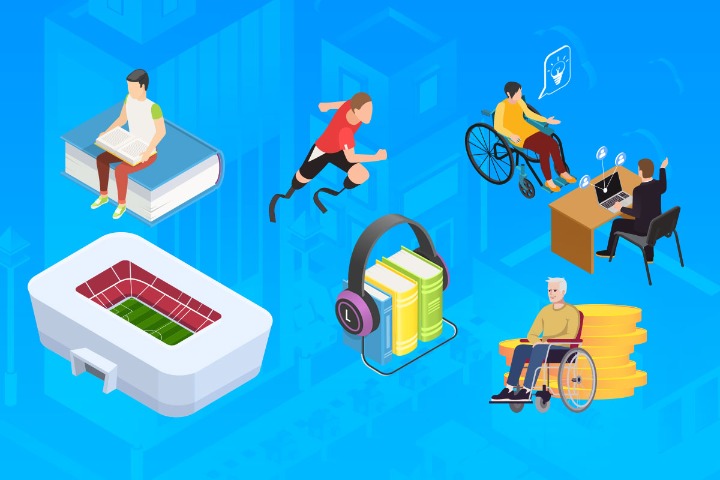App helps blind, visually impaired with basic needs


As a person born with impaired eyesight, Cai Dongyue is usually homebound as he has to rely on the help of friends and family members to go outside.
Over the past year, the 26-year-old from Pudong district, Shanghai, has spent far more time outside thanks to a volunteer service launched by the Disabled Persons' Federation in Pudong New Area in December 2017.
The service allows the blind and visually impaired to make a call with volunteers through an app called Pudong Sunshine World. Working like an online car-hailing app, the service enables users to order volunteer help through the app, reserving a time and location.
Volunteers can accept the order and help users. Cai said orders should normally be placed around one or two days ahead.
"For the blind and visually impaired people like me, visual assistance from a person for walking is most desirable, as humans can react to rapidly changing environments in public places and to my requests much quicker than assistive devices," Cai said. "The app has allowed me more access to assistance than merely relying on that of my friends and family."
Yao Huiqian, deputy researcher at the new area federation, said the app is the only official online platform designed to meet the daily demands of people with sight disability in Shanghai.
Over 200 people with visual disabilities have registered for the service, and the platform has received 950 orders since December 2017. The project was recognized as the top voluntary project in Pudong New Area in 2018.
"I am grateful for the convenience the service brings to my life," Cai said.
The Shanghai Disabled Person's Federation said last year that about 93,160 visually impaired people live in Shanghai - 19,250 of them in Pudong New Area.
"Most people may be curious as to why they rarely see blind or visually impaired people in public places," Cai said. "It's because most public accessibility facilities lack maintenance, or because we are somehow afraid of being exposed to the dangers outside."
Research by the Pudong New Area Disabled People's Federation shows that over 85 percent of visually impaired people consider walking outside their major worry, as a number of sidewalks designed for them are not built to city standards, and some people park on the sidewalks or pile things on special paths.
People with visual disabilities also said they were scared about taking buses or subway trains and crossing roads, and most of those surveyed said they needed companions when doing those things.
"Some people recommend guide dogs, but raising a dog will cost a fortune and take lots of care," Cai said.




